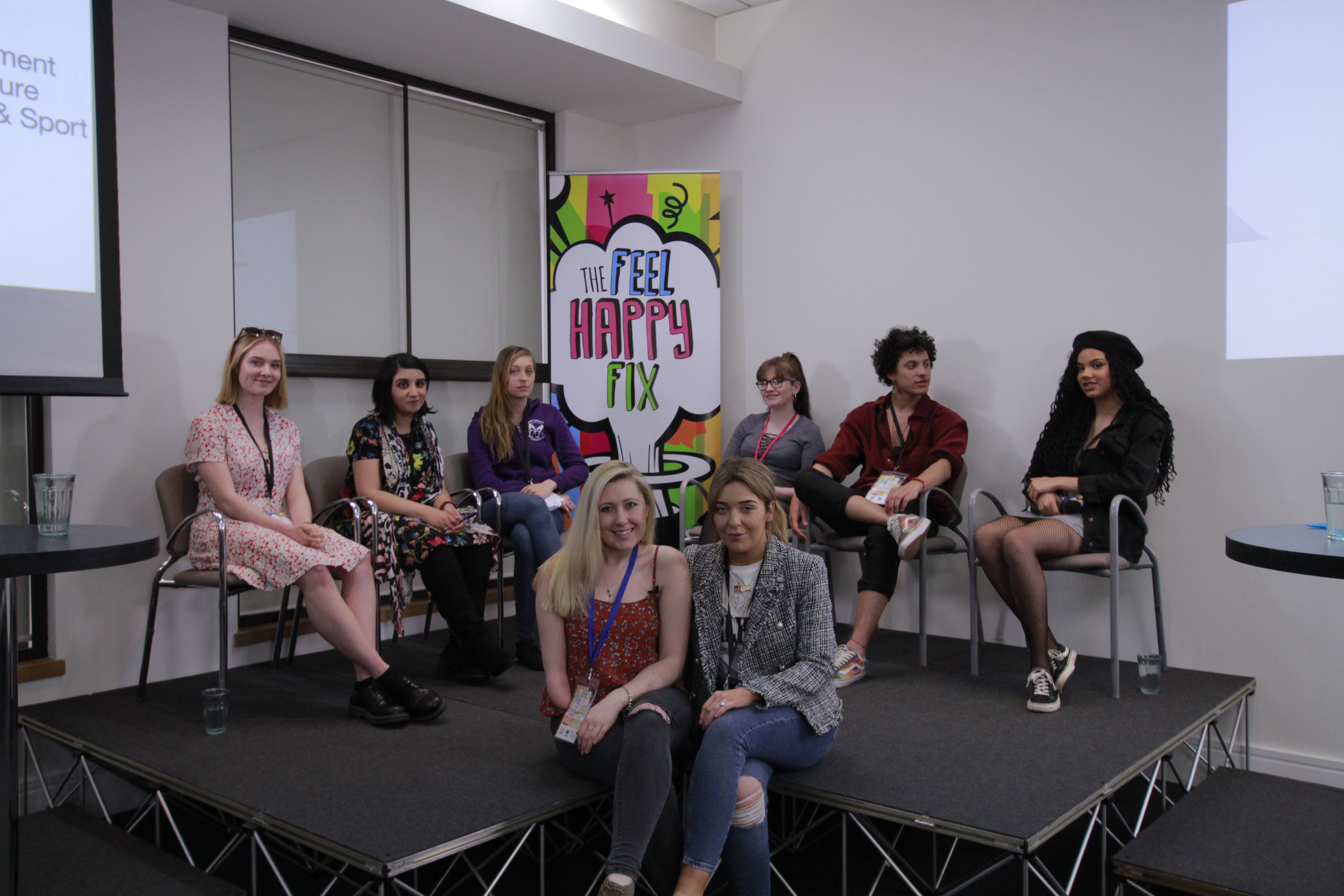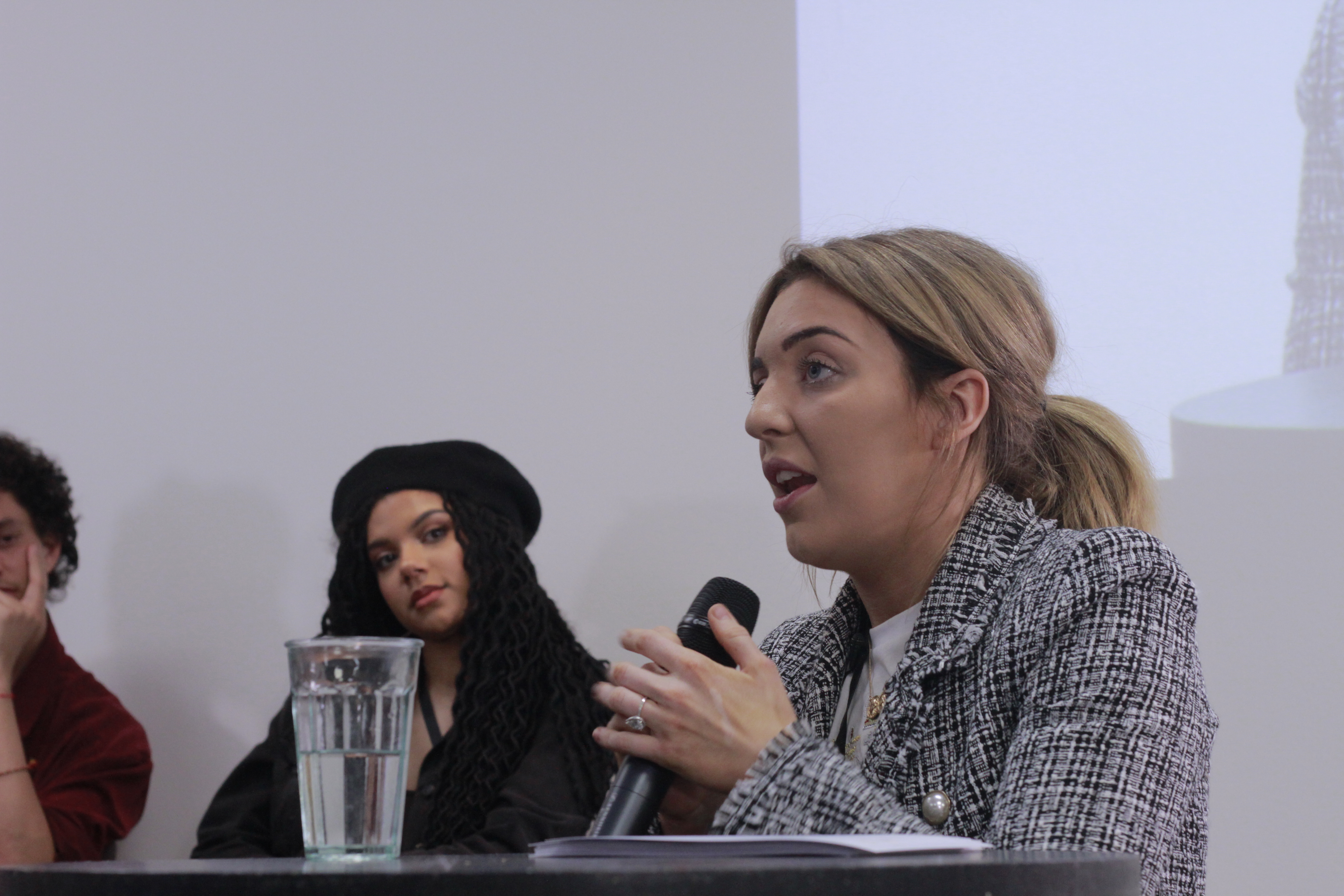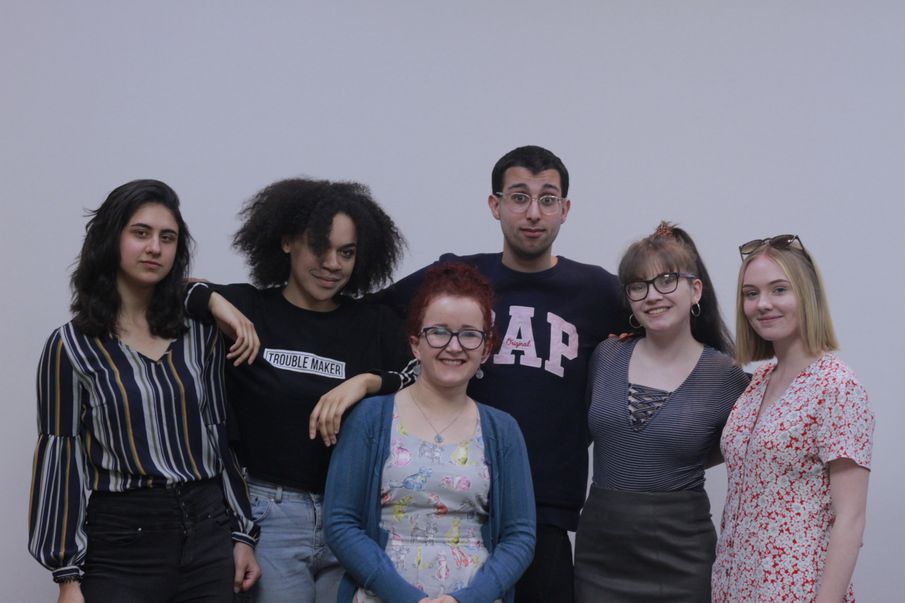Meet the young people using their experiences to fix body image
Sitting in Waterloo station, eating my sandwich and people watching, I was struck by the variety of people I was seeing. There was a huge range of ages, ethnicities, abilities and body types all walking through London in a rush to get somewhere. Next to me on the bench were a few other people, but all were looking down - either at their phone or laptop.
I realised that we are all so consumed with looking inwards - into our own social media bubbles and online worlds, we’re not seeing the diversity surrounding us.
I was on my way to the ‘Fixing Body Image’ event, held by charity Fixers when I had a mini epiphany. Suffice to say, the epiphanies didn’t stop there.
The charity facilitates a huge network of Fixers (23,000 across the UK); young people using their experiences to fix the future. This particular event was focused on the theme of body image, something that can so often be the root of mental health problems.
In the morning a selection of young people joined forces in different workshops to discuss the impact of home life, education, workplace, health services and the media on body image. In the afternoon, their findings were presented in a Question Time style panel to an audience of people working in the industry, as well as influencers and media outlets.
Following the day, a report on suggested body image fixes would be fed back to decision makers to help shape future policy.

Presenting the event was Melissa Johns (actor and campaigner for disability in the media) and Shannon Finan (eating disorder survivor and fellow Fixer). We heard from Dr Emily Kate (lead clinical psychologist at Hampshire Child and Adolescent Mental Health Services), Dr Carole Elliot (professor at Roehampton University) and Stephen Fenning (Young Persons Coordinator at Fixers) who discussed the results from the morning workshops.
Sitting on the panel itself were:
-
Ellie Hawcutt, who’s upcoming project looks at the pressures of the dance industry on body image.
-
Lyla Asif, who’s project calls for greater acceptance of disability, especially in the South Asian community.
-
Abbie Foster, in recovery from self-harm, Abbie’s project involved positive prompt cards.
-
Bethan Barnett, who is currently working on a project surrounding the importance of peer support services.
-
Calvin Fox, who worked on a project highlighting the lack of diversity in the media.
-
Onyx Uwandulu, who’s project explored dance to boost self-esteem.
Home
Discussions kicked off on the subject of home and family life. Key issues that came from the workshop and panel included generational issues (older generations lacking awareness/understanding), a focus on looks and appearance from a young age, and parents lacking self-acceptance themselves.
Looking to potential solutions, an increase in cross-generational education was mentioned as well as generating higher emotional intelligence amongst families. When discussing what parents can do to help their kids, being open and communicative was highlighted, especially when discussing physical changes that come with puberty (yes, your body will change shape and that is OK!).
Education
Next up the panel tackled school and education. A pivotal time in young people’s lives, Calvin said it’s “make or break” for many young people, especially when bullying is rife.
In the workshops it was noted that teachers can lack sensitivity and awareness, especially when it comes to mental health. Double standards were also brought to light, something I remember clearly from my school days when a teacher wearing a full face of make-up told me I couldn’t do the same.
Greater awareness training, more one-on-one time with students and including mental wellness in the curriculum were all suggested solutions. Essentially, as Onyx mentioned, teachers are role models during this time. It’s imperative that they take students seriously and give them the support they need to thrive.

Work
Moving on to the impact our workplaces have on body image, discrimination and looks-based judgements came into play. From not being hired based on the way someone looks, to positive discrimination (being hired because someone is a minority), the overall consensus was for organisations to please hire based on skills, not looks.
Again, more training on acceptance for staff was recommended and a note for other employees to call something out if it’s not OK.
Health services
A pretty big beast was tackled next - health services. A key message here was that young people aren’t aware of what’s available to them or how to access services. There’s a lack of trust underlining relationships between young people and doctors and a surprising lack of mental health awareness amongst GPs.
Bethany spoke out about her experience of anorexia, the severity of which was judged by her physical weight, not her mental distress. Dr Emily Kate, who works as a clinical psychologist in the NHS specialising in eating disorders responded with acknowledgement and news of changes being made in this area of the NHS.
As someone treated within the NHS system for anorexia myself, this response was welcome. I was in my teens when treated and back then my experience was very similar to Bethany’s with a large focus on my physical weight.
Media
Finally, the subject I was most interested in hearing about - the media. The lack of diversity and representation was brought up as being a real problem. Onyx spoke about growing up mixed race in a largely white area and said it wasn’t until she watched a TV programme centred around a black family that she felt more comfortable wearing her hair natural and embracing her culture.
Social media was also explored, and the idea for social media training for young people recommended. This could help them take greater control over what they’re consuming online and feeling freer to post authentically. Young people taking responsibility for the content they’re sharing themselves was another insight. Chatting to Kikki Nsonwu, 19, before the event, we talked about the permission being honest online grants other people.
“I just say what I’m feeling and tell people both the positives and sad things, what I’m learning through it and genuinely, people message me to say I brighten their day or that they relate - and we talk... it’s an open thing."
More transparency regarding photoshop was also raised, with fixers wanting to see more of the process and clear disclaimers when images have been altered.
Going around the panel members, each spoke about their one fix they thought could make a real difference, from self-awareness to being more compassionate, the fixes sounded refreshingly simple yet powerful. Lyla finished the discussion with one last comment -
“Don’t change. Be who you are.”
Leaving the event I found myself early for my train home so took the opportunity to sit on a bench in a sunny spot to reflect on the day. First of all, it’s incredibly humbling to see what this organisation is doing.
As important as it is to speak up about issues like this, being proactive and actually making change is what we need as a society. That desire to make real change was clear to see, not only in the adults behind the charity but in every young Fixer in the room.
A little girl started climbing the bench I was sat on, desperate to run the length of it. As I moved out of her way I had a moment of pure hope. When she gets older, goes to school, starts reading magazines... maybe things will be different. Maybe she’ll grow up proud of who she is and accepting of her body.
Time will tell, but after spending time with the Fixers, I’m hopeful.


Comments